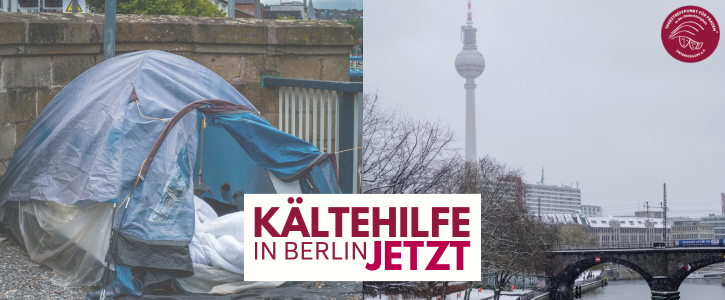NEWS FROM BERLIN
Potsdam: new builds alone cannot alleviate the housing shortage
Potsdam city administrator Gregor Jekel has said that constructing new apartments will not suffice to ease the shortage of affordable living space. Potsdam is too, like Berlin, suffering from a housing crisis. Jekel said that new builds will form part of a solution, suggesting that there should be better control over who moves into the new apartments. Regarding the news that the number of social housing in Berlin has recently fallen again, Jekel, the Potsdam department head, criticised the plans by the Federal Minister for Building, Klara Geywitz (SPD). He believes that if construction takes place, subsidized housing must be also used. Source: rbb
Fewer people from the EU countries moving to Berlin
Berlin is seeing significantly less immigration from the EU countries compared to five years ago, according to data from the Office for Statistics. In 2022, Berlin saw 5,200 immigrants from the EU arrive, much less than the over 15,000 in 2017. Due to the war in Ukraine, Belrin has seen a large number of Ukranian residents arrive as refugees : over 43,000 last year. There has also been a rise in the number of Russians arriving,at around 5,200. Source: rbb
University of Rostock examines doctoral thesis by Berlin Senator for Transport
The University of Rostock wants to examine the doctoral thesis submitted by Berlin Transport Senator Manja Schreiner (CDU) for allegations of plagiarism. The Senate Department for Transport, Environment and Climate Protection announced on Monday that they had been informed by the rector and dean of the law faculty that the thesis was to be examined. Schreiner had already informed rbb on Sunday that she wanted to have her thesis checked due to previous allegations. The thesis was titled “Employee Consideration in Takeover Law” and was first submitted in 2007. As a result, volunteers analysed the work on the “VroniPlag Wiki” portal and, according to their own statements, found several dozen text passages which were considered objectionable. Source: rbb
NEWS FROM GERMANY
Majority of Germans support a move to green economy
A recent study, carried out every year by the German Federal Environmental Agency (UBA), concluded that most Germans support an ecological transformation of the economy. An impressive total of 91% of respondents said that they were very or generally in favor of making Germany’s economy greener. However, as in previous years, the data shows a gap between how climate problems are perceived and how people really act against this. The Government agency study takes a critical look at the individuals actions: “Many people take climate change problems seriously and are emotionally affected by them. But their actions don’t always reflect this”. Source: dw
Factory output in Germany plunges amid economic gloom
Germany’s industrial output fell for a second consecutive month in June, as figures published last Monday show, with a drop of 1.5% far wider than the previous month’s slip of 0.1%. The German Economy Ministry warned that high energy prices and interest rates had taken their toll, despite rising demand. The traditional strong automobile sector showed a significant fall of 3.5%. The German Federal Bank predicts the country’s economy will contract by 0.3% in 2023. This is also including the boost given by the 7.9% growth in the pharmaceutical sector. Source: dw
Limited childcare options: parents in Germany ‘facing burnout’
With German Kitas unable to find the staff they need, many are closing their doors at short notice. According to a survey published last Friday by the trade union-affiliated Hans Böckler Foundation, almost six out of ten working parents were confronted with such scenario last spring. The shortfall seems to be most prominent in western Germany, where 362,400 additional childcare places are required to bridge the gap. In eastern Germany, in contrast, just 21,200 extra places are needed at this moment. The Federal Parents’ Council chairperson Christiane Gotte reminds the eastern states have a structural advantage because of how work and care was organised in the GDR. Source: the local




